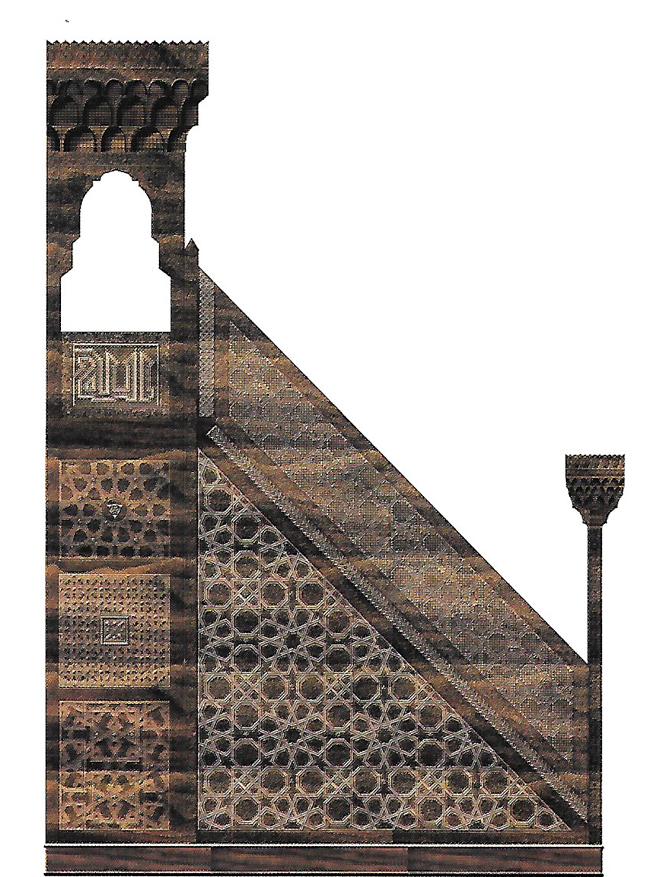-

 Know, the true nature of your Beloved.
Know, the true nature of your Beloved.
In His loving eyes, your every thought,
Word and movement is always –
Always Beautiful.
~ Hafiz

The Minbar of Saladin
In the Name of God, the Compassionate, the Merciful.
One masterpiece of Islamic Art can be more effective than a hundred interfaith conferences. When people say, “This is truly beautiful” – although it is Islamic, it is truly beautiful because it is Islamic. Rather, it is Islamic because it is truly beautiful.
To love Islamic Sacred Art, people do not have to be Muslims. They do not have to know anything about Islam. They do not have to know anything about Sacred Art, or even about art in general. When they come and see the beauty it evokes in them – as beauty does – a gentle kindling of love. They leave with a more positive image of Islamic civilization, and perhaps more peace, which they keep inside themselves.
All art is to do with beauty. Sacred Art, however, is to do with universal beauty. To be universal it must reflect Truth. Thus Sacred Art contains not just beauty but also a true symbolism. This symbolism cannot be arbitrary, or a mere conventional human association: it is and must be an exact and spiritually effective representation of a higher Truth on a lower plane. This is the key to Islamic Sacred Art.
Thus Islamic Sacred Art contains a universal language. This can be seen in the great Minbar of Saladin. HM the late King of Jordan, and after him, his son HM King Abdullah II of Jordan, have recently, by the Grace of God, achieved the exact reconstruction of the great Minbar of Saladin – and with it have revived a number of traditional Islamic Sacred Arts for the first time in the Islamic world after many centuries. I think it not ironic, but fitting, that this was accomplished with help from the Prince’s School of Traditional Arts set up by HRH the Prince of Wales in London. I hope that Islamic Sacred Art will continue to be a bridge of beauty between Islam and the West. God says in the Holy Quran:
“Lo! Those who believe and do good works, the Infinitely Good will appoint for them love.” (Quran 19:96)
HRH Prince Ghazi bin Muhammad of Jordan.
Written as a Forward to the book, ‘The Minbar of Saladin’, which tells the remarkable story of how one of the masterpieces of Islamic art, the Minbar of Saladin, was reconstructed after the original was destroyed by fire in 1969.
